Best 5G Phones of 2024
Nearly every phone from Apple, Samsung and Google, including the iPhone 15, iPhone 15 Pro, Galaxy S24 Ultra and Pixel 8 lineup, is 5G-ready. That means these smartphones come equipped to deliver the fastest possible data speeds across your wireless network. And while they tend to be pricey, there are plenty of affordable 5G options like the Google Pixel 6A and Apple’s cheapest, the 2022 iPhone SE. Rest assured, you should be able to find a good 5G-ready phone at a price you’re comfortable with.
Though it won’t replace 4G in its entirety, 5G is the next generation of mobile connectivity. 5G works fast, and many industries and products can benefit from the upgraded network, including drones, self-driving cars and internet-of-things devices. Its growth across the US, the UK and the wider world has been fast, but it’s still not everywhere quite yet, so make sure 5G coverage is available — or at least coming soon — in your area before you spend your cash on a 5G-enabled handset. With 5G handsets being offered by every major phone manufacturer now, it can be difficult to work out which is best for you. We’ve done some of the hard work and put together a list of our top 5G-enabled phones that you can go and buy right now.
What is the best 5G phone right now?
In 2024, there isn’t one specific phone that stands conspicuously head and shoulders above the others. If you’re an iOS user the best phone you can buy is the iPhone 15 Pro. It has an A17 Pro processor, a new main camera with a larger and higher megapixel sensor, a new Action button and the Dynamic Island — a display cutout that shows system alerts and background activities.
If you’re on Android, our favorite phone is the $800 Samsung Galaxy S24. The battery life is amazing. But that’s not the only reason its our pick for best Android phone. It’s gets seven years of major Android updates, the cameras are good (there’s even a 3x telephoto lens for zooming). And then there are all the AI features. Most are just OK, but Circle to Search is outstanding. Samsung didn’t reinvent the phone, but it did take a great phone (the Galaxy S23) and make it better.
Best 5G phones of 2024
Apple’s iPhone 15 Pro and Pro Max bring a variety of changes, including a new customizable Action button, powerful camera upgrades, thinner bezels, a lightweight titanium design and the new A17 Pro processor. All these upgrades come together to make for an experience that feels fresh and fast compared with older generations.
It’s the most expensive iPhone you can buy, especially if you opt for the larger Max version, but if you want the high performance and stellar camera quality of Apple’s top phone, then the iPhone 15 Pro is for you. Read our iPhone 15 Pro review.
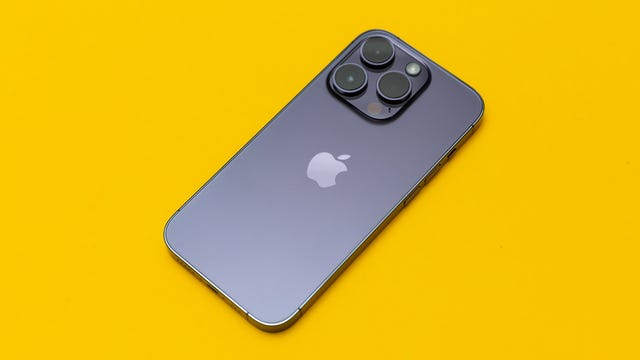
Stephen Shankland/CNET
What impresses me the most about the Samsung Galaxy S24 isn’t the new Galaxy AI features, brighter screens or solid cameras. It’s the battery life. After testing, I can say the larger battery in the Galaxy S24 has no trouble plowing through a long day of use on a single charge.
The S24 is a wonderful, well-built phone that is excellent right out of the box just as the nearly identical S22 and S23 were before it. This similarity to the S22 and S23 can be viewed as either a strength, because the design reflects three years of refinements, or a weakness, because features like the camera hardware are essentially identical to what came out in 2022. But all of this is overshadowed by the great battery life. You’ll never hear anyone complain about getting too much battery life. Read our Samsung Galaxy S24 review.
With the Dynamic Island, a USB-C port for more convenient charging and an upgraded camera with a higher resolution and a crisper zoom, the iPhone 15 is a significant upgrade for those with older iPhones. It feels like a scaled back version of the iPhone 14 Pro, making Apple’s entry-level iPhone 15 feel like a bigger leap forward than last year’s.
The iPhone 15 is available in two size options: the 6.1-inch iPhone 15 and the 6.7-inch iPhone 15 Plus. They run on the same chip as iPhone 14 Pro, the A16 Bionic, which should bring notable performance upgrades to those with an iPhone that’s several years old. These phones also have Apple’s second-generation ultra wideband chip, enabling a new feature that makes it easier to find friends or family members in a crowd.
Last year’s iPhone 14 Pro may be a better choice if you can still find it through third-party retailers at a discount, particularly because it has a dedicated telephoto lens. But the iPhone 15 is the most exciting upgrade Apple’s standard iPhone has seen in years. Read our iPhone 15 and 15 Plus review.
The Pixel 8 has many of the features of the more expensive Pixel 8 Pro but comes in a slightly smaller package and with a smaller price tag to match. You’ll find the Tensor G3 processor on board, along with Android 14 software that includes AI tools like the generative image wallpaper creator. It also comes with the same guarantee of at least seven years of security updates so this phone will still be going strong in 2030 — as long as you look after it.
The rear cameras are more cut back here though, as the base Pixel 8 lacks the 5x optical zoom camera seen on its bigger brother. I personally love that zoom lens, but then I’m a professional photographer. If photography isn’t a priority for you, you can save yourself a bundle and opt for the cheaper of Google’s new range. The Pixel 8’s higher price $699 seems worth it and makes you realize just how incredibly affordable the $599 Pixel 6 and 7 were and still are. Read our Google Pixel 8 review.
With a sharper 5x optical zoom, a faster new processor and that familiar giant display and 100x digital zoom, the Samsung’s “Ultra” phone remains a top choice for mobile photographers that want plenty of screen space. The Galaxy S24 Ultra is also one of the first phones with Samsung’s new Galaxy AI features, which include tools for translating text messages and phone calls instantly and Circle to Search, a new gesture that lets you launch a Google search for almost anything simply by drawing a circle around it. Like the previous two generations, the Galaxy S24 Ultra comes with an embedded S Pen for those who like jotting down notes or doodling. But perhaps best of all, Samsung has committed to updating these devices with new versions of Android for seven years, meaning it shouldn’t feel out of date anytime soon.
Still, there are still some important downsides to consider. At $1,300, this phone is expensive, so be sure to look for trade-in discounts if you plan to upgrade. And for that high price, I had hoped Samsung would’ve added extra Galaxy AI features that are specific to the Ultra — perhaps some that take advantage of the S Pen. But Galaxy AI is the same on all Galaxy S24 devices, and it’ll be coming to the Galaxy S23 lineup soon too, so you don’t have to splurge on Samsung’s top-of-the-line phone if you just care about those features. Read our Samsung Galaxy S24 Ultra review.
The Galaxy Z Flip 5 is the biggest leap forward Samsung’s flip phone has seen in years. Samsung has significantly expanded the size of the cover screen located on the outside of the device, meaning you can look up directions, take photos and send messages without opening the phone. It’s this combined with the Z Flip’s solid battery life and sturdy design that makes it a top pick.
The Z Flip 5 may be our favorite flip phone, but there are still some drawbacks to be aware of. At $1,000, it’s still expensive for a phone without a telephoto camera. And not all apps work natively on the front screen as they do on the Motorola Razr Plus. Read our review of the Galaxy Z Flip 5.
Though it’s one of the cheapest phones you can buy from Samsung, the Galaxy A54 still packs great features, like 5G connectivity, a decent multiple rear camera setup, solid battery life and power enough for your everyday essentials. It looks pretty, too, and it’s one of the few remaining phones that lets you expand the built-in storage using microSD cards.
It’s a great all-round budget phone, although generally we found that the Pixel 6A offers better camera and processor performance, and it costs less than the Samsung. Read our review of the Galaxy A54 5G.
The OnePlus Nord N30 5G includes a lot of features for the money, but its 50W charging speed is a standout for this price range. The phone can charge from 0% to 100% in 45 minutes, and most other phones that cost $300 or less need 90 minutes to two hours to do the same thing. Its large 6.72-inch 1,080p display that runs at a 120Hz refresh rate also makes apps, games, websites and streaming video animate smoothly.
However it’s worth calling out that the 108-megapixel main camera — despite being an astounding megapixel number on a phone — takes photos that are only marginally better than what I usually see from phones in this price range. While the OnePlus does face stiff competition from Google’s Pixel 6A — especially when the Pixel is discounted to $270 — it does include a lot of functionality for its price. Read our OnePlus Nord N30 5G review.
The Pixel 6A may be more than a year old, but its often discounted price still makes it a tempting choice for Pixel fans on a budget. CNET’s Lisa Eadicicco called it the “best Android phone under $500” in her initial Pixel 6A review in 2022, calling out how it keeps the same Tensor chip seen in the higher-end Pixel 6 and many of its features.
The phone is slightly smaller than the Pixel 6, featuring an 6.1-inch OLED display and a refresh rate of 60Hz. And it has a similar camera to the Pixel 5A, including a 12.2-megapixel main camera and a 12-megapixel ultrawide camera. But by including the Tensor chip, photos can benefit from its Real Tone skin tone feature, Face Unblur, Night Sight for darker photography and the Magic Eraser for removing unwanted elements from a photo. Read our Pixel 6A review.
The iPhone SE may be the cheapest phone Apple produces, but it still comes with superfast 5G. While it lacks the camera prowess of the much more expensive iPhones, it runs the latest iOS 17 software and uses the same processor found in some of the higher-end models, making it a great phone for everyday use and light gaming. Read our iPhone SE (2022) review.
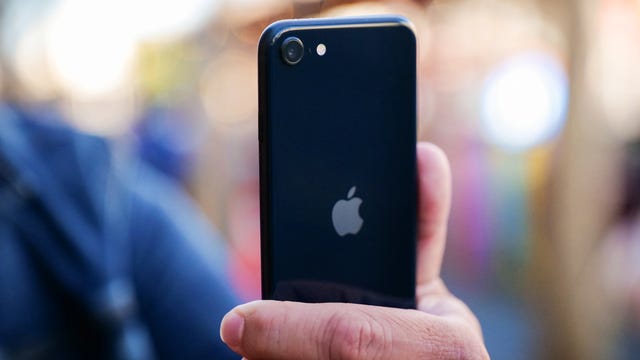
Patrick Holland/CNET
While we had some early issues with the Google Pixel 8 Pro — mostly with its cameras shooting Raw files — further testing and software updates from Google meant we eventually came away thinking quite highly of the Pixel 8 Pro. It’s got a lot going for it, from its slick design and easy-to-use Android 14 software to its rear camera setup, which can take some genuinely beautiful images. Google has sprinkled a variety of new AI features throughout the phone too, including a tool that uses generative AI to create wallpapers for the phone, and a camera feature that allows you to combine different faces from a series of burst images of a group of friends to make sure that everyone looks their best.
But one of the best updates is Google’s commitment to providing seven years of security updates to the Pixel 8 series, meaning this phone will still be safe to use in at least 2030. While we haven’t been as impressed with this year’s 8 Pro as we were with the 7 Pro, it’s still a great phone to consider, especially if you’re keen to hold on to your phone for longer. Read our Google Pixel 8 Pro review.
If fast charging, powerful performance and having a large, bright screen matter most to you in a phone, check out the OnePlus 12. OnePlus’ new phone can go from empty to full in less than 30 minutes thanks to its 80W charging in the US, a perk that can be helpful if you have a long day ahead and forgot your charger. It runs on Qualcomm’s Snapdragon 8 Gen 3 processor, which feels swift and zippy whether you’re playing games or just scrolling around the interface. The OnePlus 12’s 4,500-nit peak brightness also makes it ideal for outdoor use, since its screen is noticeably brighter than rivals like the iPhone 15 Pro Max and Samsung Galaxy S24 Ultra.
But there’s room for improvement when it comes to the camera. While shots taken on the Plus 12 are decent, CNET’s Andrew Lanxon found nighttime photos look too dark and described the optical zoom as “very hit or miss.” It’s also worth noting that the OnePlus 12 gets four years of software updates. That would have been fine by 2023’s standards, but Google and Samsung now offer seven years of Android updates, which keeps those devices fresh and relevant for a longer period of time. Read our OnePlus 12 review.
The $450 Samsung Galaxy A54 5G proves, you can get a phone with solid performance for a very reasonable price. It packs a 6.4-inch display, an octa-core processor that offers enough power for daily essentials (including light gaming) and a camera that does a decent job of handling your out-and-about snaps. Its 128GB of storage will be enough for most people, and those who need more space can expand it with microSD cards up to 1TB in size.
The $1,400 Sony Xperia 1 V retains all the best features of previous Xperia 1 phones, like a 4K high refresh rate display, expandable storage, cutting-edge cameras with eye-tracking autofocus, a 5,000-mAh battery, a dedicated hardware shutter button and a headphone jack, all wrapped in Sony’s lovely, mundane utilitarian design. The phone brims with numerous quality of life improvements for its target audience of creative types like photographers, filmmakers, musicians and gamers who want nuanced control over the content they make. But its $1,400 price tag keeps this phone squarely aimed beyond most consumers.
The Asus ROG Phone 8 Pro is a $1,200 gaming phone that takes nearly every feature to the extreme. It has a 5,500-mAh battery, a 6.78-inch AMOLED with a high refresh rate and touch sampling rate, 65W wired charging and even a door on the back for a detachable fan to keep the phone’s Qualcomm Snapdragon 8 Gen 3 chip as cool as possible. The software is optimized and easily customized for gaming including touch-sensitive areas on the sides of the phone that double as shoulder buttons for games.
Every phone on this list has been thoroughly tested by CNET’s expert reviews team. We actually use the phone, test the features, play games and take photos. We assess any marketing promises that a company makes about its phones. And if we find something we don’t like, be it battery life or build quality, we tell you all about it.
We examine every aspect of a phone during testing:
- Display
- Design and feel
- Processor performance
- Battery life
- Camera quality
- Features
We test all of a phone’s cameras (both front and back) in a variety of conditions: from outdoors under sunlight to dimmer indoor locales and night time scenes (for any available night modes). We also compare our findings against similarly priced models. We have a series of real world battery tests to see how long a phone lasts under everyday use.
We take into account additional phone features like 5G, fingerprint and face readers, styluses, fast charging, foldable displays and other useful extras. And we, of course, weigh all of our experiences and testing against the price so you know whether a phone represents good value or not.
Read more: How we test phones
Consider last year’s models: They can often be a great deal, too. Many companies keep previous generation models of their phones around at a lower price.
Try it out before you buy it: The best way to know if you like a phone is to actually go to a store and try it out.
Prioritize which features are the most important: Do you want a large screen? Are cameras the most important feature for you? What about battery life? Narrow down your choices. This will save you time and money.
Don’t discount affordable phones: You can get a great phone that does almost everything that a flagship can do for a fraction of the price.
Save with sales: Companies and retailers usually roll out deep discounts around major holidays, especially Amazon’s Prime Day and Black Friday.
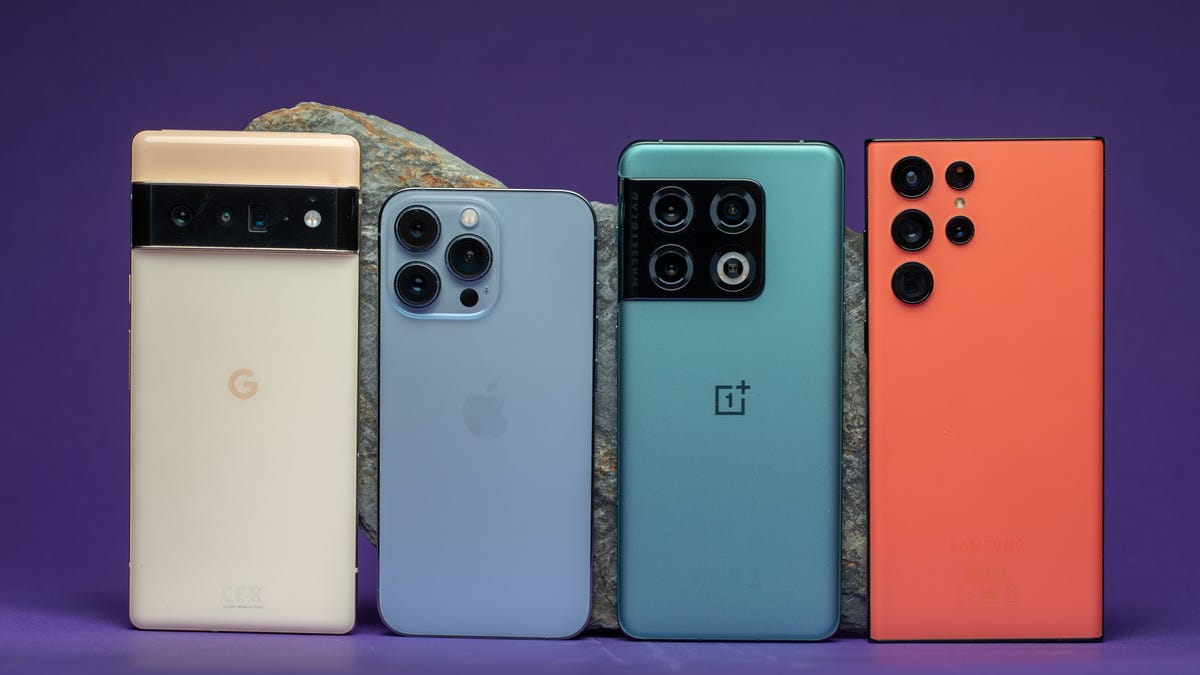

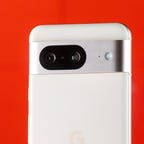
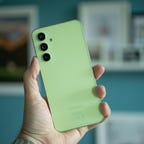
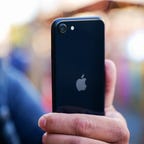




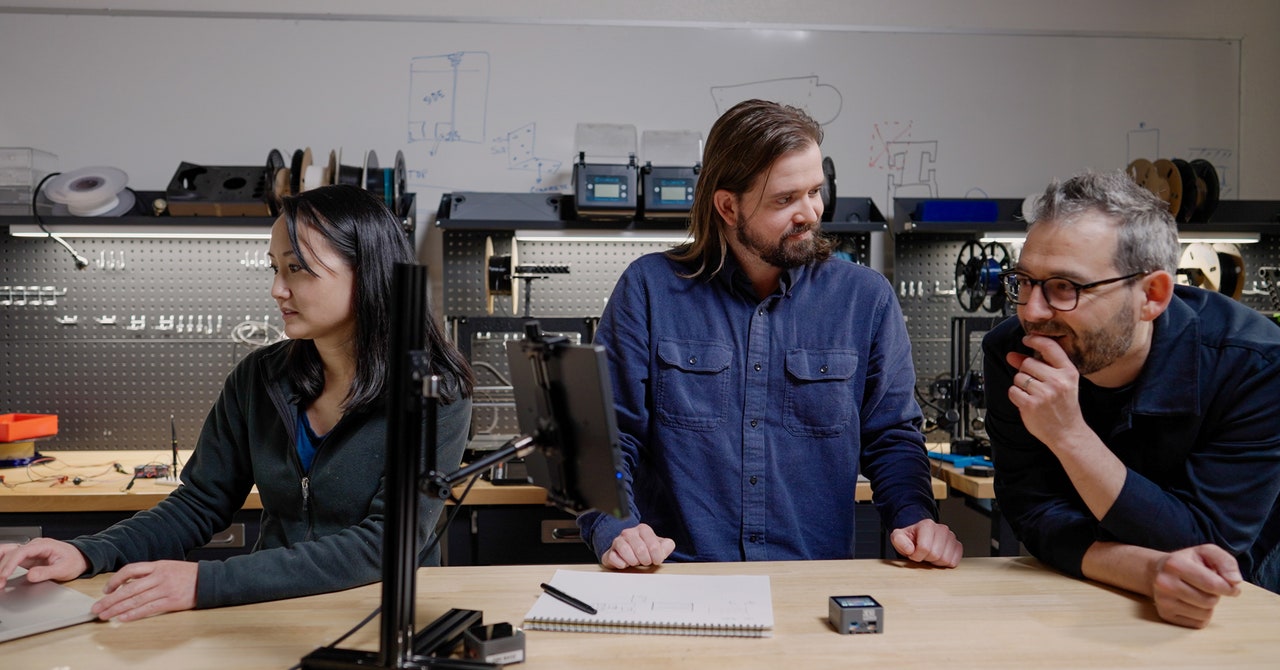
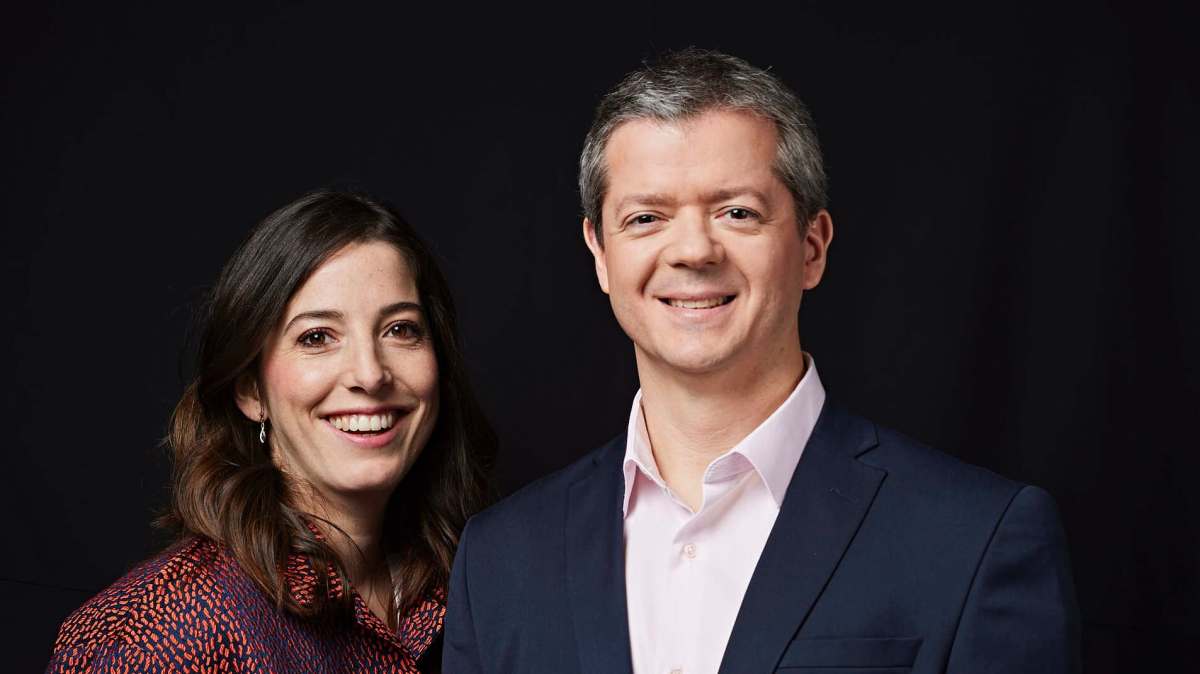







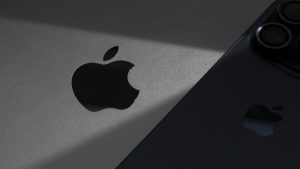

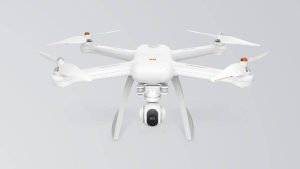
Post Comment
You must be logged in to post a comment.